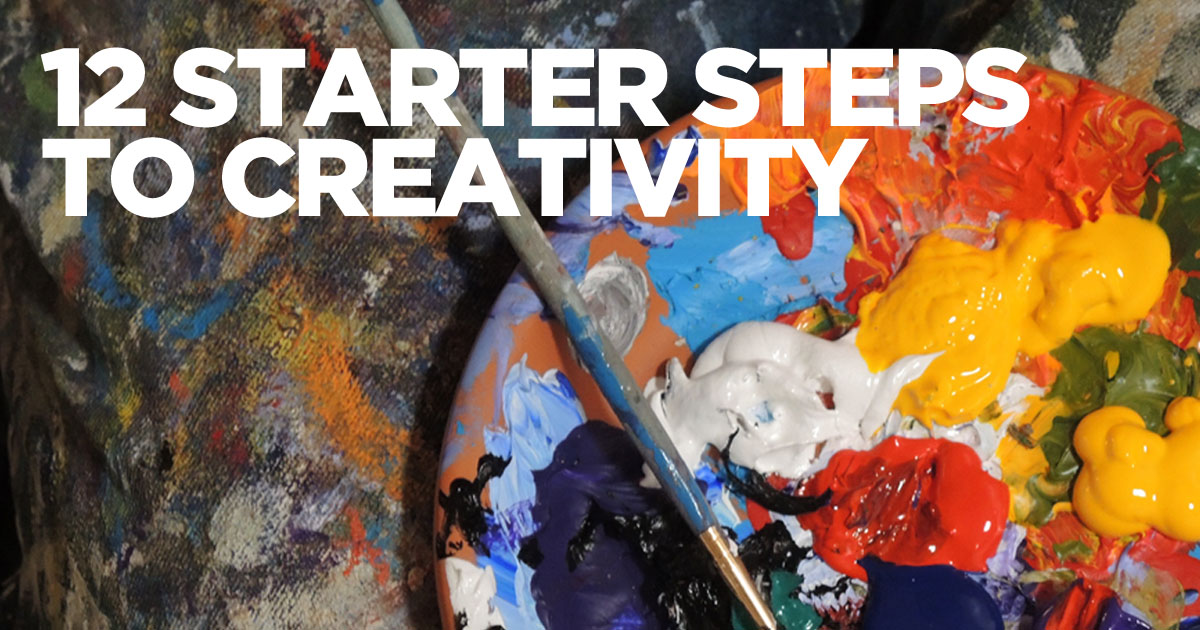
This blog originally appeared on foursightonline.com and is written by Blair Miller
“I’m not creative” she said emphatically and made her point further by saying, “I don’t get paid to be creative, and nothing you can say or do will change this that.”
Let’s call her Jane. She was a very well thought of professional, who had been recognized and rewarded for her contributions to the organization. Jane not only did not conceive of herself as a creative person, she also did not see any benefit to it.
During a week-long training I conducted on creative thinking, we had many conversations and practiced some tools. We talked about how creativity may just be the most fundamental of human traits—the ability to take in the world around us, learn from our surroundings and transform those bits of information into useful things.
After five days of training and 20 years on the job, Jane declared, “I’m creative!” Jane started sharing her ideas. She became known as a valuable source of insight. Was Jane creative before this? Yes, but she did not recognize it or develop her abilities.
Following are some of my personal favorite starter steps to spark your own creativity.
1. Openness to novelty
Practice being open to other points of view. Don’t just tolerate other ideas, seek them out.
2. Tolerance for ambiguity
When diving into the unknown, we can be plunged into areas with complex and seemingly conflicting information. When it is time to make a decision, you may have too much or too little information. Be OK with that.
3. Tolerance for complexity
Not all things worth having are simple. Sometimes we need to be open to complexity and keep with it until we understand the entirety of an area. Hang in there don’t give up.
4. Idea system
When an idea strikes, capture it. Draw a sketch. Jot it down. Periodically review your ideas. Take one and elaborate on the original. Your recording device may be a notebook, a smart phone or a computer. Keep it handy to capture your ideas when they come.
5. Mind the gap
Scan your world for areas that have missing elements or parts that are not working. Take these “gaps” and think up how they might be improved.
6. Phrase problems as questions
When something bugs you, phrase your complaint as an open-ended question. Instead of “I can’t get this to work!” ask “What might be all the ways I could get this done?” The key is to phrase a problem as an open-ended question that invites ideas.
7. Go for lots of options
When coming up with alternatives, go for lots of them. Many options reduce risk. If one idea does not pan out, you will have other ideas to draw upon.
8. Test fast. Fail fast. Adjust fast.
Practice the art of rapidly prototyping ideas. Learn from the rough spots, make some quick changes and try again. Get momentum and keep it going.
9. Use praise first when evaluating ideas
When given an idea, project or task to evaluate, reflect on the positives before jumping into looking at the problems.
10. Be responsible for your own creativity
See yourself as a creative person. Exercise your creative muscles. When you think you have the “right” answer, ask, “What else could work here?” Practice all of these suggestions on a regular basis.
11. Expose yourself
Put yourself in front of different points of view. Go to art galleries, conferences, talks, read journals or books that are from totally different fields than those you “normally” come across. Discover how others approach challenges and what kinds of ideas they are pursuing.
12. Create partnerships, networks, find a mentor
Collaborate with others who are doers and makers like you. Partner with people who seek alternatives to “How it has always been done before.” Look for a mentor or teacher who will take an interest in your learning and development.
Want to bring more creativity to your workplace?
{{cta(’27fcf3d3-6034-4a43-8bbc-ca6dc71e107c’)}}
